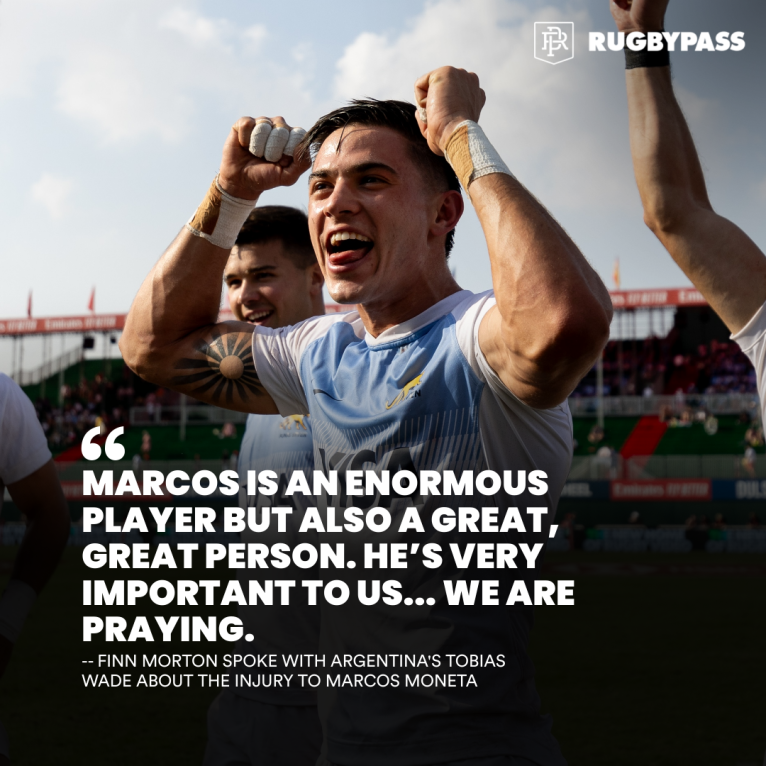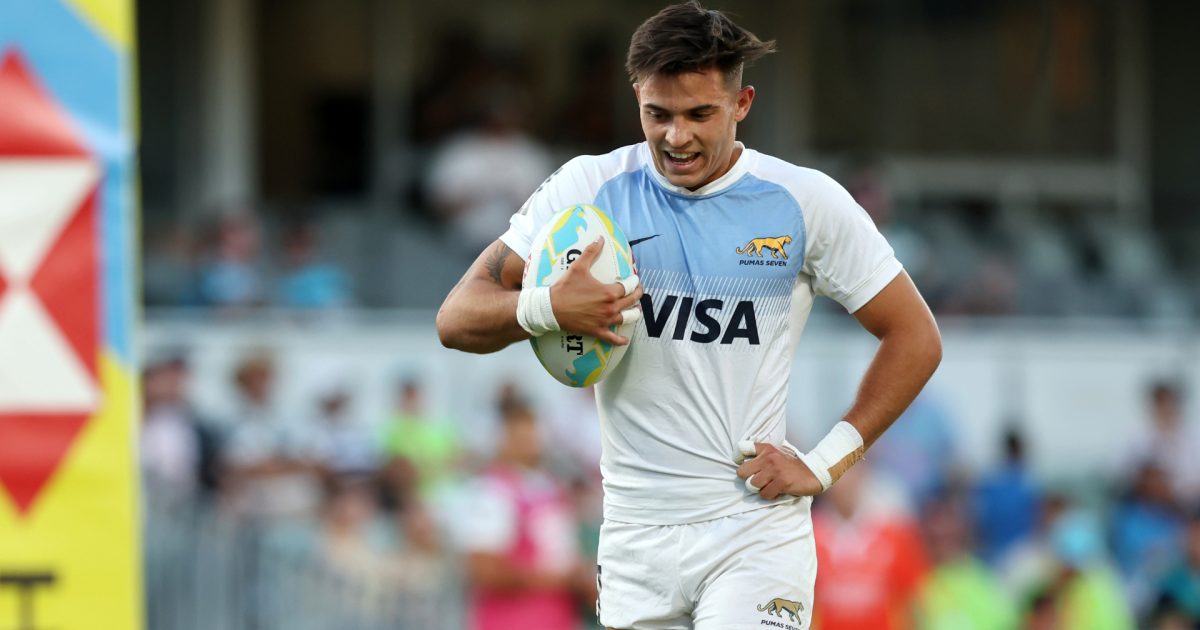Argentina ‘praying’ for injured SVNS star Marcos Moneta, miss quarter-finals

Men’s SVNS Series leaders Argentina have failed to make the Hong Kong Sevens Cup quarter-finals after superstar Marcos Moneta picked up a devastating injury at the spiritual home of rugby’s shorter format.
Moneta, who was nominated for World Rugby’s Sevens Player of the Year in 2023, suffered the injury during Los Pumas Sevens’ surprise defeat to Perry Baker’s USA on day one at the world-famous Hong Kong Stadium.
Argentina seemed to feel the absence of their injured try-scoring machine during their second pool clash. The Series front-runners were on the wrong end of a cricket-esque sevens score as they went down 22-nil to an improved All Blacks Sevens outfit.

Tobias Wade kicked a penalty goal in golden point to hand Argentina their first win of the tournament, but that victory wasn’t enough to book their place in the next stage. Argentina needed other results to go their way and they didn’t.
Australia didn’t come close to the 30+ point defeat to Canada which would’ve seen Argentina go through, and Fiji secured their spot in the quarters with a hard-fought 14-7 win over an Antoine Dupont-less France side.
“We had a bad day yesterday. We tried to put the focus on today, to win (against) GB,” Tobias Wade told RugbyPass.
“If we don’t pass to the quarter-finals we have to try to move on to try and prepare for the next game. We’ll try to focus on our next chapter.
“Of course I was nervous. Maybe No. 10s have to be prepared for those moments,” he added when asked about the penalty goal. “I truly believe in myself so I tried to put the focus on that, that I was prepared to kick it and kick it well.”
Argentina claimed silver in the opening event of the season in Dubai before going on to win three consecutive gold medals. But after a shock quarter-final elimination in Los Angeles, it’s gotten worse as they’ve officially failed to make it out of the group.
Without Marcos Moneta, who has proven himself to be one of the best players on the SVNS Series, Argentina haven’t looked as threatening. That speaks volumes about the type of player that Moneta is within this Los Pumas Sevens side.
With the injured Moneta set to fly back to Argentina during the Hong Kong Sevens weekend, his teammates will be “praying” for a speedy recovery.
“Marcos is an enormous player but also a great, great person. He’s very important to us, to the group. He’s always with a smile, trying to get good energy,” Wade explained.
“We miss him but I think that today or maybe tomorrow he’s going back to Argentina to do some studies on how the injury moves on.
“We are praying… we will miss him but I believe that he will be back much, much stronger. We know Marcos is a great player so we all believe that there will be a good tomorrow.”

















































